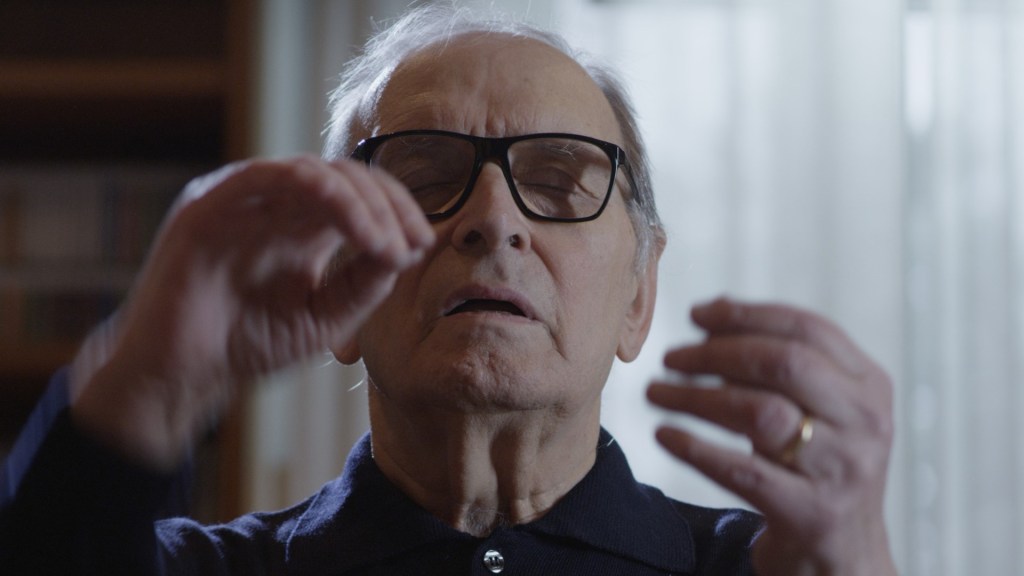“Ennio” is a virtual love letter of a documentary from Italy’s Oscar-winning director Giuseppe Tornatore (“Cinema Paradiso”) to his distinguished, Oscar-winning compatriot, the prolific maestro of film scoring Ennio Morricone.
With a prodigious 400 film scores Morricone, 91 when he died in 2020, is known for his many Sergio Leone movies beginning with “A Fistful of Dollars” and “The Good, the Bad and the Ugly,” “The Mission,” “The Untouchables” and his Oscar winner, Quentin Tarantino’s “The Hateful Eight.”
“Ennio” reveals a musical childhood. His father was a trumpeter who decided, no questions asked, that his son would be one as well.
Morricone’s rise began as an arranger-composer of hit pop songs for ‘60s singers on Italian TV shows before his remarkable film career.
“From the very beginning, I wanted the structure of the film to be very polyphonic and not to be a traditional documentary where the thing that mattered the most were the interviews,” Tornatore said from his Rome office in a virtual interview via a translator. “Instead, I wanted to follow the laws not of audio-visual language but by the music and the structure.
“So the images, interviews, film sequences had to follow the laws of music. What came out in the end was really nice, an unusual approach to documentary.”
Morricone as a serious conservatory student dreamed of a life composing classical concerts. Was he conflicted making movie music? Was that conflict ever resolved?
“In a certain sense, that is true,” Tornatore answered. “That was the deepest interior conflict of Ennio’s life — because he had no prejudices. For his entire life, he played a very important role in making popular music more ‘cultured’ — more high art we could say. And making high art classical music more open to the public.
“In the 1950s this was not a very easy path to follow. It was an era in which the idea of using a musical talent and combining it with making money was regarded with great suspicion.
“But he always tried to keep a great balance between the two — because he loved classical music! But he also loved cinema. Cinema wasn’t just a backup job for him.
“In doing what he did, he also changed the way that music is composed for film.”
Is Morricone worthy of being compared to Mozart and Beethoven? Will he be remembered 200 years from now?
“That’s a very delicate subject. When someone said that to Ennio he was embarrassed and rejected that comparison. He said, ‘You know what? Let’s wait 200 years and see.’
“But John Williams came out and said that, ‘In 200 years, your music would still be remembered.’”
“Ennio” opens at the Coolidge Corner Theatre March 29


